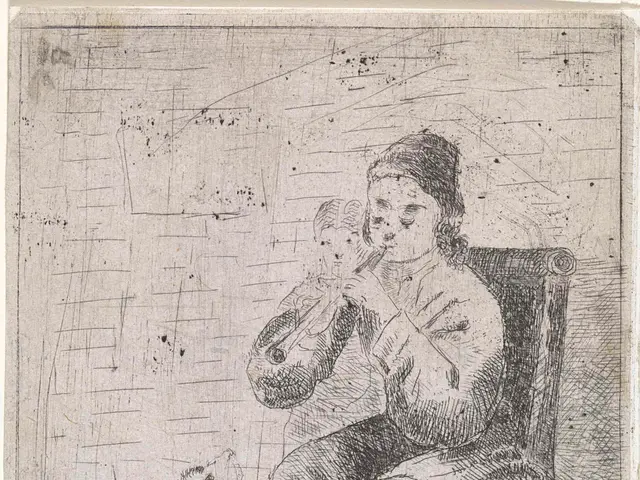Hollywood Secret Document Reveals: The Importance and Nature of Spec Scripts
Gripping Guide to Crafting Your Own Spec Script
Navigating the film and television industry can be daunting for emerging writers, but one essential tool in your arsenal is the spec script. In this captivating guide, we delve into the spec script universe, exploring its importance, the differences between TV and film spec scripts, and the pros and cons of penning one.
What is a Spec Script?
A spec script, or speculative screenplay, is a script penned by a writer without a guaranteed paycheck or production. Unlike commissioned scripts, where a writer works on a specific project, a spec script is written with the hope of capturing the interest of agents, managers, or production companies. These scripts aim to highlight the writer's talent, creativity, and understanding of storytelling, acting as a portfolio for potential opportunities.
Notable Spec Scripts
The spec script phenomenon has been a driving force behind many iconic films and TV shows. Famous examples include "Good Will Hunting," co-written by Matt Damon and Ben Affleck, "Thelma & Louise" by Callie Khouri, and "American Beauty" by Alan Ball - all written speculatively and ultimately leading to significant career advancements.
Creative Freedom and Voice
The freedom to explore unique ideas, genres, and characters without the constraints of a commissioned project is a significant advantage of writing a spec script. It allows writers to showcase their distinctive voice and storytelling style, making them more attractive to industry professionals searching for fresh perspectives and original content.
Television vs. Movie Spec Scripts
In the past, there was a clear distinction between television and film spec scripts, but with the rise of streaming platforms, the lines have become blurred. There are inevitable differences, however, that can help emerging writers navigate the process more effectively.
Television Spec Scripts
In the television realm, spec scripts play a pivotal role. Writing for television can involve creating an original pilot or writing an episode for an existing series. Each approach offers a unique opportunity to shine and demonstrate your adaptability as a writer.
Original Pilot
An original pilot script introduces characters, -worlds, and conflicts in a standalone package, essentially serving as the blueprint for an entire series. It's a chance to create your universe, craft compelling characters, and engage audiences from the get-go, showcasing your creativity and understanding of TV storytelling structure.
Existing Series Episode
When writing an episode for an existing series, the goal is to fit seamlessly within the show's established world, characters, and narrative style. Research and analysis are crucial to align your script with the show's tone, pacing, and character dynamics, demonstrating your ability to work within established parameters and potentially catch the eye of producers.
Enriching Your Spec Script
To elevate your spec script, consider these valuable enrichment strategies:
- Concept Development: Start with a strong, unique idea that captivates your audience, drawing from real-life experiences, books, or other sources of inspiration for depth.
- Craft Well-Rounded Characters: Give characters distinct traits, backstories, and motivations to create relatable, engaging characters.
- Write Engaging Dialogue: Use natural dialogue that sounds authentic and reveals character, advances the plot, and creates tension.
- Outline Story Structure: Adhere to a three-act structure (setup, confrontation, and resolution) and incorporate unexpected plot twists to keep the audience engaged.
- Proper Screenplay Formatting: Use correctly formatted scene headings, action lines, and dialogue to enamor industry professionals with both the story and your professionalism.
- Refine and Edit: Refine your work through multiple drafts and seek feedback from peers or mentors to improve the quality of your script.
- Finalize the Title Page: Include your title, name, and contact information on the title page, omitting draft dates unless working on assignment.
By incorporating these enrichment strategies, you can create a captivating spec script that distinguishes you in the competitive industry. Embrace your creative passions and strive to tell truly original stories!
In the realm of speculative screenwriting, a spec script is a crucial means for emerging writers to showcase their talent, creativity, and understanding of storytelling, serving as a portfolio for potential opportunities within the entertainment industry. Notable spec scripts, such as "Good Will Hunting" and "Thelma & Louise," have led to significant career advancements, demonstrating the power of this tool.








